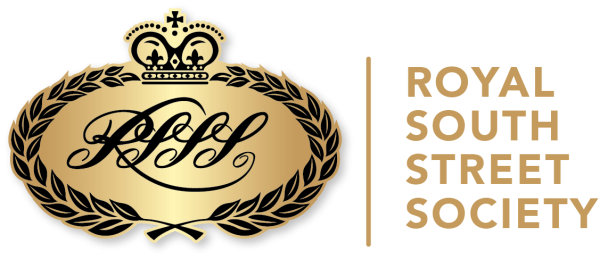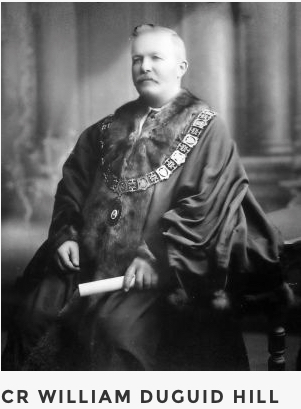
1921
After the war, enthusiasm for Brass Bands and Choral work pushes the South Street Society to greater heights. Six thousand entries are received from every Australian state and for the first time, some have to be rejected, with 20 choirs, 48 bands and 150 calisthenics teams keen to compete.
‘Tides of visitors flow in and out, filling hotel, boarding-house and bed-and-breakfast accommodation, putting smiles on the faces of the proprietors of café and fish-and-chip shops.’ Weston Bate, Life after Gold.
Ballarat West and East Councils finally amalgamate and W D Hill, founder of South Street, becomes the first Mayor of Ballarat Citycr-w-d-hill
John Brownlee wins the gold medal as champion vocalist at the South Street having never had a singing lesson his life and abandons accountancy to sing full time. In 1926 he would sing with Dame Nelle Melba in La Boheme in Covent Garden at her farewell performance.
The first live radio broadcast from South Street takes place and W D Hill dies in office after 42 years of remarkable service to the Eisteddfod and Ballarat community.
1922
The Society receives a letter asking if a competition for Ladies Pipe Bands is in the pipeline and it is decided that choir members in the Shops and Factories Choirs must have at least month’s employment to make them eligible.
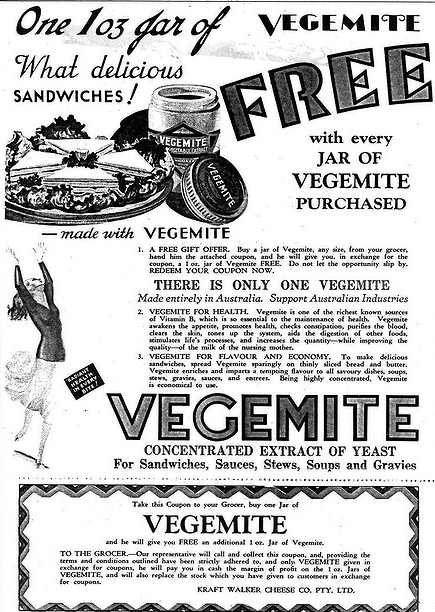
1923
The Sun begins correspondence with South Street seeking guidance on a competition for their annual prize and Vegemite, the invention of a young Australian chemist, starts production to take on Britain’s Marmite.
A section for those able to deliver twelve original tongue twisters attracts prize money, with points awarded for clarity, speed and expression.
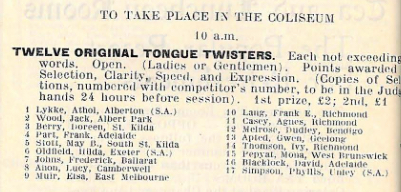
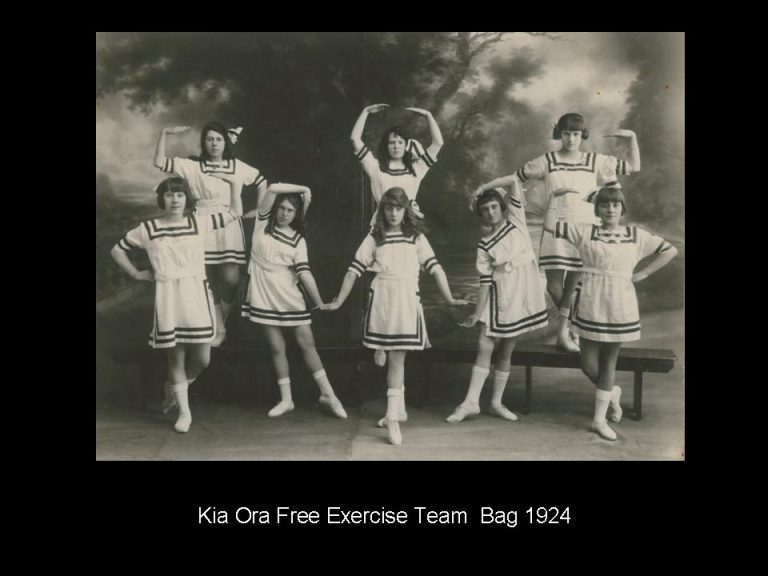
1924
The Grand Opera contest becomes the Sun Aria competition and is won by Lawrence Power from South Australia. Since 1924, the Herald Sun Aria has never been won by the same competitor twice and throughout its history has provided young opera singers with the opportunity to take their talent to the world.
As one winner commented
“A win at South Street is the hallmark that leads to fame.’
The “Most Graceful Physical Culture Girl” is introduced into the Calisthenics Section.
Permission is granted to Mr. Warne Wilson to install a radio to broadcast the Competitions from the Coliseum.
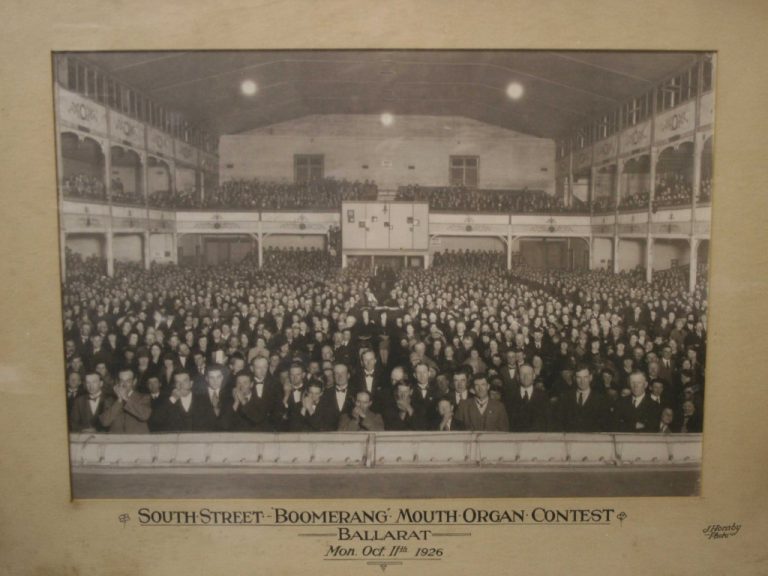
1925
Messrs. Albert & Sons of Sydney provide 43 pounds for cash prizes and gold and silver medals for a Boomerang Mouth organ contest. Despite opinions that the contest is not in keeping with South Street standards, 77 entries are received and the Coliseum is packed to the doors, with winner Percival Spouse of Sydney, described as ‘outstanding.’
The contests were held until 1931 when mouth organ bands came into vogue and took centre stage until 1940.
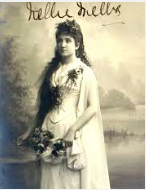
1926
Dame Nellie Melba sings at benefit concert for South Street at the Coliseum and 3000 people pack the hall as new sections including a jazz concert are added to the competitions.
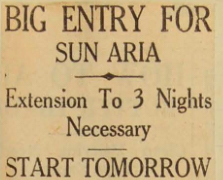
1928
The Sun Aria competition attracts a record number of entrants, with 110 aspiring singers travelling to Ballarat from across the country.
The Australian Travel Service Pty. Ltd. promotes a Commonwealth wide contest for a singer to travel free to Wales with the Welsh Delegation, along with an additional 50 Pounds cash to compete in the Welsh Eisteddfod. The Victorian section of the contest is held at South Street, and won by Eric Jones of Northcote.
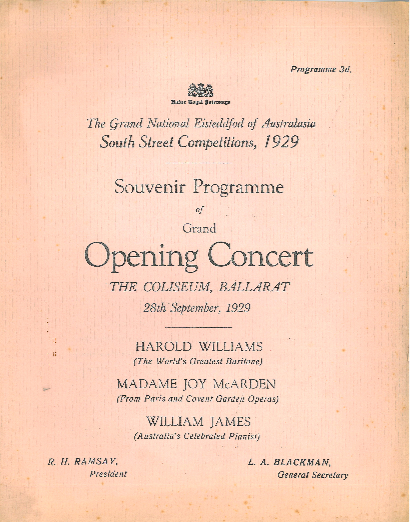
1929
South Street commemorates its Jubilee year with a star-studded concert at the Coliseum – including Harold Williams, reputed to be “The World’s Greatest Baritone”, celebrated Australian Pianist, William James, and from Paris and the Convent Garden Operas, Madame Joy McArden.
The state school brass band and mouth organ band competitions are added to the competitions and attract considerable interest.
James Scullin is sworn in as Prime Minister, having honed his debating skills as a successful contestant and respected adjudicator at South Street over a thirty year period. It proves a difficult time for the new administration as Wall Street crashes and the Great Depression begins.

1930
Radio 3BA begins broadcasting, Her Majesty’s Theatre is wired for sound and Phar Lap wins the Melbourne Cup, with the moment captured for posterity on ‘talkie’ film.
The Ballarat airport is established in the same year thousands of people turn out en masse in Darwin to see Amy Johnson after her epic solo flight from London which took just under 20 days.
